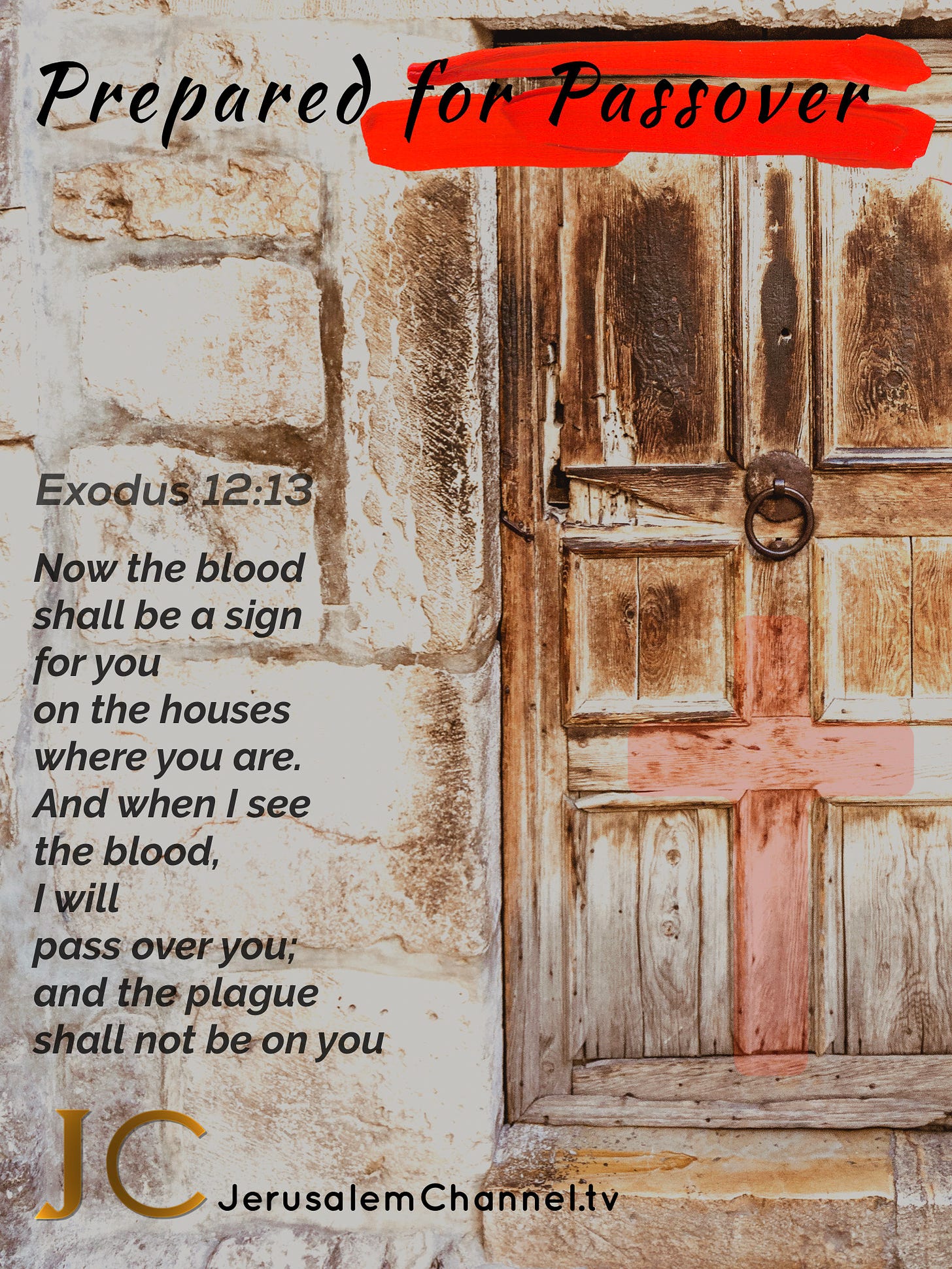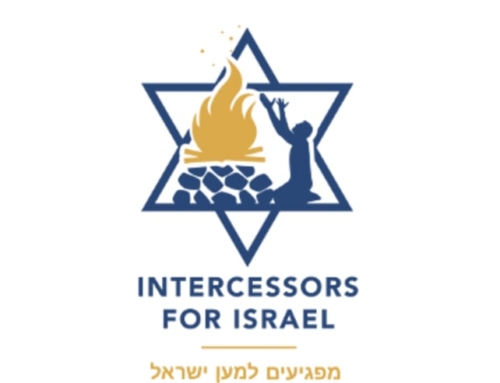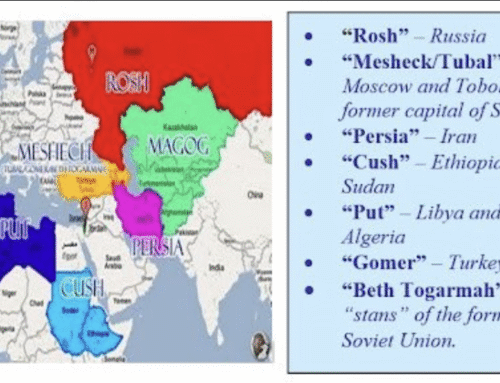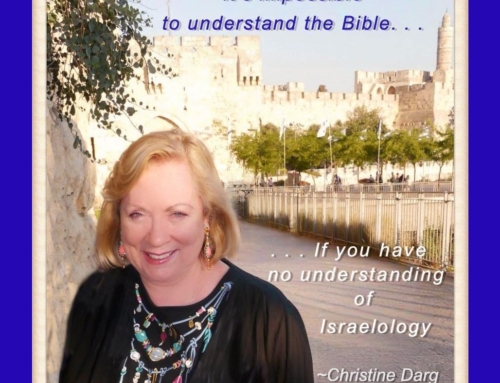Compiled by Christine Darg, Jerusalem Channel
A headline this week: Episcopalian bishop of Missouri bans Christian Passover seders in diocese. “Reverend Deon K. Johnson calls practice ‘deeply problematic’ and warns ‘it contributes to the objectification of our Jewish neighbors’”
This is absolutely wrong, dear people! Celebrating the Passover is part of our Judeo-Christian heritage and understanding the Hebraic roots of our faith!
“Now, some Christian clergy are passing that same message onto their followers. Last week, the Episcopal bishop of Missouri, the Rev. Deon K. Johnson, posted an open letter to his diocese saying that Christian seders are ‘banned’ because they advance supersessionism, or the belief that Christians have superseded, or replaced, Jews as God’s chosen people.
In his letter, Johnson explicitly forbade his diocese from “hosting, holding or celebrating Christian seders.”

However, this ban goes against the entire tenor of Scripture! Our ministry has just hosted a glorious and prophetic Passover seder (photo above) during Holy Week here in Jerusalem, and nothing could have been more Christ-centered and edifying for this troubled world.
The Hebrew4Christians.com website perfectly explains why holding a Passover seder is an education within churches and takes nothing away from the Jewish people:
John Parsons, who writes the “Hebrew for Christians” website, posted the following beautiful explanation:
“For Christ our Passover is sacrificed for us; therefore let us keep the feast.” (1 Cor. 5:7-8)
Some well-meaning Christians think that followers of Yeshua have no reason to do a Passover Seder as instructed in the Torah because, in light of the new covenant, all that is now needed is to remember Jesus’ crucifixion for our sins and to celebrate his resurrection by partaking in the sacraments. This viewpoint assumes that, despite the instructions in the Torah, the yearly Passover service, or seder, is not intended for Christians, since it focuses on the Exodus from Egypt and the Jewish people, and the message of the gospel is universal, for every “tongue and tribe.” Moreover since Christians are no longer “under the law,” they are not obligated to keep the ordinances of the “Old Testament,” especially with regard its ceremonial laws.
There are some real difficulties when we disregard the Torah’s instructions to observe the Passover, however, particularly because Yeshua himself identified his entire ministry as the “Lamb of God” who redeems us from the curse of the law, and he used the message of the Passover to teach his followers this truth. Bear in mind that the idea of the Passover was not enacted at Sinai as part of the Sinai covenant, but predates the giving of the law. In other words, the faithful of Israel obeyed God’s instruction to take refuge under the blood of the sacrificed lamb to escape the plague of death delivered upon Egypt, but this was done before Moses ascended Sinai to receive and ratify the covenant of the law.
Indeed the theme and message of Passover is timeless for understanding the Bible. The message was delivered in the Garden of Eden when God sacrificed a lamb to cover the shame of Adam and Eve (Gen. 3:21); it was prefigured in the lamb that was sacrificed by Abraham in place of Isaac during the Akedah; it was portrayed in the blood of lamb sacrificed in Egypt whose blood was daubed upon the doorposts; it was memorialized every day and night at the Tabernacle (and later at the Temple) as “continual korban,” the offering of which was central to the sacrificial ministrations for Israel; it was foretold by the Hebrew prophets (Isa. 9:6; Isa. 53; Psalm 22:16; Prov. 30:4; Zech. 12:10. etc.), and it was fully manifested in the incarnation, mission, and sacrifice of God’s beloved Son himself, the promised heir to come who allowed himself to be “caught in the thicket” for our sins, and who was bound upon the altar of the cross to shed his blood for our redemption. This was the central meaning of the “greater exodus” that Yeshua discussed with Moses and Elijah on the mount of transfiguration before his crucifixion (see Luke 9:29-31). Amen, Yeshua as our sacrificial Lamb is heart of the gospel message itself (John 1:29; 1 Pet. 1:19; Isa. 53:3-12); it’s the “scarlet thread” he showed his followers (Luke 24:27); it’s the Metaphor God chose to make his sacrificial love known to us.
The image of “Christ our Passover Lamb” (המשיח פסח שלנו) will extend forever and unto eternity itself, when the Lamb of God is fully glorified and enthroned, as it says: “For the Lamb on the throne will be their Shepherd. He will lead them to springs of life-giving water. And God will wipe every tear from their eyes” (Rev. 7:17). “And the city has no need of sun or moon, for the glory of God illuminates the city, and the Lamb is its light” (Rev. 21:23).
The meaning and substance of Passover, then, is essential to the life of the Christian, and to dismiss its significance is to risk missing the point of God’s redemption and salvation itself. The Apostle Paul used “Passover language” to describe our new life in Messiah by admonishing us to: “purge out the old leaven, that you may be a new lump, since you truly are unleavened. For indeed Christ, our Passover, was sacrificed for us. Therefore let us keep the feast, not with old leaven, nor with the leaven of malice and wickedness, but with the unleavened bread of sincerity and truth” (1 Cor. 5:7-8).
The LORD did not waste his breath by revealing the Torah to Israel, nor did he speak out of two sides of his mouth when he instructed them to keep the Passover holiday every year (Num. 9:2,14; Lev. 23:5; Deut. 16:1). Remember – Jesus was the Voice of God speaking to Israel at Sinai; Jesus was Moses’ Teacher regarding the seven holidays of the Torah! He said “Do not think that I came to destroy the Law or the Prophets. I did not come to destroy but to fulfill. For assuredly, I say to you, till heaven and earth pass away, one jot or one tittle will by no means pass from the law till all is fulfilled. Whoever therefore breaks one of the least of these commandments, and teaches men so, shall be called least in the kingdom of heaven; but whoever does and teaches them, he shall be called great in the kingdom of heaven” (Matt. 5:17-19). Heaven and earth has not yet passed away, and therefore the Torah has its voice and place in the life of follower of Yeshua. Faith does not mean we are devoid of law of God, even if the verdict of the law reveals our sin. As the Apostle Paul said, “Do we then make void the law through faith? Certainly not! On the contrary, we establish the law” (Rom. 3:31). We are justified by trusting in the righteousness of God in the sacrifice of Yeshua, but that does not mean we disregard God’s law so that “grace may abound” (Rom. 6:1-2)
So you see that the question of whether Christians should seriously engage the Passover turns on how they read the Scriptures, and in particular, how they esteem the words of the Torah. If they tend to read the Bible out of context, by focusing on the New Testament without taking time to carefully consider the context given in the Hebrew Scriptures, they likely will dismiss the significance of the Passover Seder and will think of it in theologically abstract terms, as an analogy or metaphor foretelling what Yeshua has done, and that it is now best remembered during communion rituals, rather than as an invitation to participate in the annual retelling of the great story of redemption that is the heritage of the people of God. But Yeshua himself observed the Passover with his disciples, and indeed his last Passover before his crucifixion represented his most intimate heart to us. We miss a lot if we minimize the significance of the Passover or regard it as somehow incidental to our life as believers in the great Lamb of God. Chaverim — let us keep the feast! Shalom lekha.
[ Hebrew for Christians ]
Artwork by Susan Bowles:








Excellently put!!! God is so very gracious , loving and kind that He makes the simple to understand His wisdom. We have all been delivered from out of Egypt, ( the world of sin ) And in His Spirit we are all connected, into His glorious family. The olive tree has both types of olive branches the natural and wild.And God said how easy it will be to grath in the natural branch As a young Christian this totally blow me away. As a mature Christian Israel is an intricate part of who I am they are my brothers and sisters as in the same way as Jeshur who is also lord and saviour. Thank you so much for the wonderful words you bring to the table for us to enjoy
Ban the Christian Passover seder? Another sign of the end times.
Dear children, this is the last hour; and as you have heard that the antichrist is coming, even now many antichrists have come. This is how we know it is the last hour. They went out from us, but they did not really belong to us. For if they had belonged to us, they would have remained with us; but their going showed that none of them belonged to us.
–1 John 18-19
1 John 1:18-19